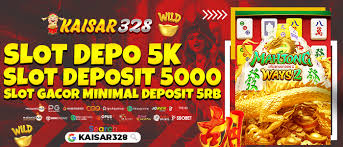The Joker card is a unique and intriguing element in the world of playing cards, often associated with fun, mischief, and unpredictability. Originally created for use in games, the Joker has evolved into a versatile symbol that transcends paito angka, appearing in various aspects of popular culture, art, and even psychology. This article will explore the origins of the Joker card, its role in card games, its cultural significance, and its representation in art and media.
Origins of the Joker Card
The Joker card was introduced in the United States during the mid-19th century as a part of the game of Euchre, a trick-taking card game. Originally known as the “Best Bower,” the Joker served as a wild card, allowing players to substitute it for other cards to complete their hands. This role as a wild card laid the groundwork for the Joker’s later versatility in various card games.
The design of the Joker has varied over the years, but it typically features a whimsical character, often a jester or clown, adorned in colorful clothing. The character’s playful demeanor symbolizes the card’s unpredictable nature, making it a favorite among players and a staple in many decks of playing cards.
Role in Card Games
The Joker card serves multiple purposes in various card games:
- Wild Card: In many games, the Joker acts as a wild card, substituting for any other card to form a winning hand. This can lead to exciting and unexpected outcomes, enhancing the thrill of gameplay.
- Game Variants: The Joker is sometimes included in game variants, adding an extra layer of complexity. For example, in games like Poker, some variations allow players to use Jokers as wild cards, significantly altering the strategies involved.
- Scorekeeping: In certain games, the Joker may have a specific point value, contributing to the overall scoring system. In Rummy, for instance, Jokers can represent higher point values, making them valuable assets in gameplay.
- Elimination: In games like Uno, the Joker can serve as a special card that allows players to eliminate others or change the game’s direction, showcasing its adaptability.
Cultural Significance
Beyond the realm of gaming, the Joker card has taken on cultural significance and symbolic meanings:
- Symbol of Chaos: The Joker is often associated with chaos, unpredictability, and the breaking of societal norms. This symbolism has made it a popular motif in literature and art, representing the idea that life is unpredictable and full of surprises.
- Psychological Archetype: In Jungian psychology, the Joker is seen as a representation of the Trickster archetype, embodying the duality of chaos and order. The Trickster challenges conventions, encouraging individuals to question norms and embrace the unexpected.
- Entertainment and Performance: The character of the Joker has inspired countless entertainers, from clowns and jesters to modern-day performers. This figure’s playful and often subversive nature has made it a beloved element in various forms of entertainment, including circus acts and stand-up comedy.
The Joker in Popular Culture
The Joker card has made its mark on popular culture, appearing in various forms of media, including:
- Movies: The Joker character, particularly from the Batman franchise, has become an iconic figure in film. Portrayed by actors like Heath Ledger and Joaquin Phoenix, the Joker represents the chaos and unpredictability of society, making it a powerful symbol in modern storytelling.
- Comics: In comic books, the Joker has been portrayed as both a villain and a complex character. His unpredictable nature and humorous yet sinister personality have made him a favorite among readers, leading to his recurring presence in various story arcs.
- Art: The Joker card has also inspired visual artists, often representing themes of duality, chaos, and societal critique. Artists have used the Joker to explore complex ideas about identity, morality, and the nature of existence.
Conclusion
The Joker card is more than just a playful addition to a deck of cards; it embodies a rich tapestry of history, cultural significance, and psychological symbolism. Whether it’s as a wild card in a game, a character in a movie, or a symbol of chaos in art, the Joker continues to captivate and intrigue. Its adaptability and unpredictability mirror the complexities of life itself, reminding us to embrace the unexpected and find joy in the whimsical moments that come our way. Whether you’re playing a card game or engaging with the Joker in other forms of media, it’s a reminder of the excitement and unpredictability that life has to offer.
